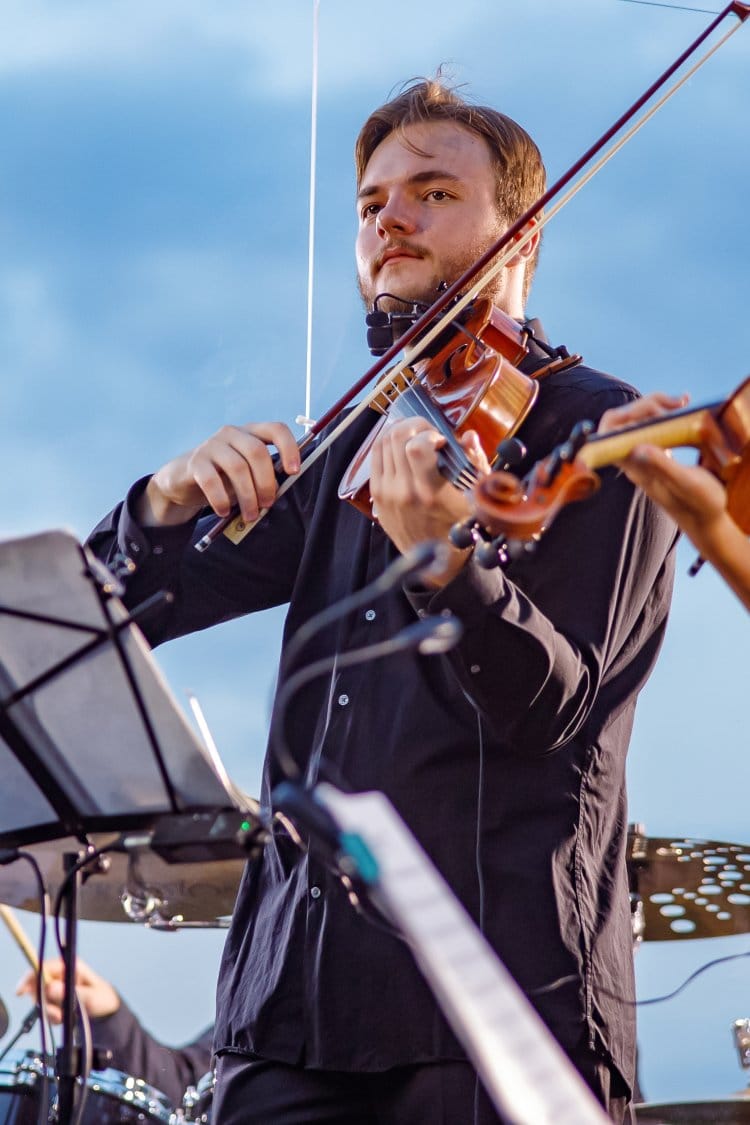


Music has a way of influencing brains to have a more positive response to different situations. Those who have experienced depression or anxiety will often find solace in the lyrics or melody of music. According to a study done in 2010, over 90% of people identified with or formed an emotional connection to music. At D’Amore Healthcare™ we offer music therapy as a way to help patients who struggle with mental health.
Music therapists use instruments, lyric writing, and improvisation playing, as a way to help those who need help with mental disorders. Research has shown that employing music with therapy has had multiple benefits for those grappling with mental health issues. The Journal of Music Therapy has stated: “Music therapy can contribute to the quality of mental health care by providing an arena for stimulation and development of strengths and resources that may contribute to the growth of positive identity and hope for people with mental illness.”

Music has been around for as long as people can remember there is evidence of it in every culture. Practicing it as a form of therapy has proven to be a valid form of treatment. At D’Amore Healthcare™, we use types of therapy that can only increase the chances of our patient’s recovery. Music therapy sessions can help with:
Songs have a way of identifying the struggles people go through. At the same time offering an outlet for emotions that are difficult to process.
A music therapist will use lyric analysis to practice processing emotions in a safe and less threatening way. Using this approach offers people a way to identify what they are feeling through the lyrics of a song. By participating in music therapy services, our patients will be able to discover songs that correlate directly with how they feel. Our expert therapists will encourage our patients to use alternative lyrics and uncover themes in the lyrics that apply to the obstacles they are experiencing.
At our healthcare center in Orange County, our music therapists work with patients to encourage their emotional expressions. By playing instruments or creating lyrics, our therapists at D’Amore can provoke emotions while also encouraging social interaction. At the same time, they are encouraging different avenues of communication. This can be done using different instruments to identify distinct emotions that our patients could be feeling.
For example, using instruments to create sounds and music that create both high and low sounds. Then identifying the feelings they had while playing, and listening to, those instruments. By doing this, the patient and their therapist can begin to understand the patient’s current state of mind.
Regulating and improving moods is a big part of music therapy. The repetitive rhythm of the music accesses the neocortex (sensory perception) of the brain inducing calm and reducing impulsiveness. Many times people will try to find music to match their moods or feelings.
While this benefits them due to the connection they form to the lyrics or melody, it can also be harmful. If they are feeling angry or depressed and only listen to music that matches that mood, then they can become stuck. This can be dangerous in regards to their mental health. A music therapist will often start their patients off with music that matches their negative feelings. Then slowly transition to something that induces more positive emotions.
This is one of the best ways for a person to express themselves. Musical ability isn’t needed to show how they feel. A person can create lyrics in which they can identify within themselves. Music allows someone to use instruments and lyrics to reflect their emotions and their mental health. It is a way of validating feelings through an alternative source and instilling a sense of pride over their creation.



Research in music therapy has increased over the years and has shown to be a vital source for therapists. At our Orange County mental health treatment center, we provide music therapy as a way to breach the walls that our patients have spent years building up. By offering our patients music as a form of treatment, we provide a unique view into their emotions and moods.
A study was done in 2006, involving 60 adults with chronic pain. The results of the study pointed to music being the core reason that their pain was reduced and depression had lessened. Another study was done in 2009 and presented conclusions that music-assisted therapy improved the quality of sleep to those who struggled with sleep disorders.
D’Amore Healthcare™ offers music as a way to provide different types of therapy for our patients. By using music therapy, our medical staff can gain further insight into our patient’s minds and what causes them: depressive moods, anxiety, stress, etc.
After this has been determined treatment can begin. The focus will shift to how our patients can improve their moods and feelings of stress or anxiety. By doing this they will create an enriched and healthier lifestyle for themselves.